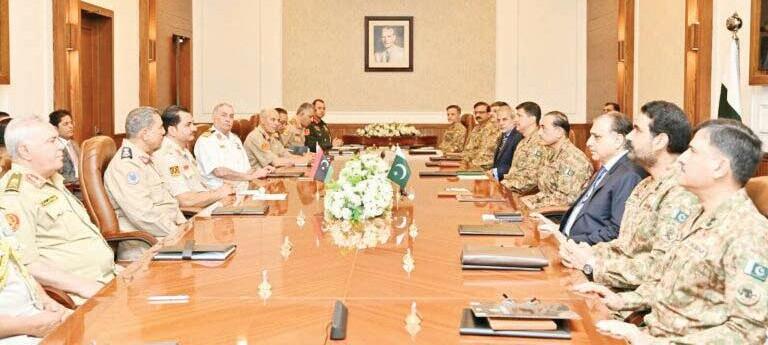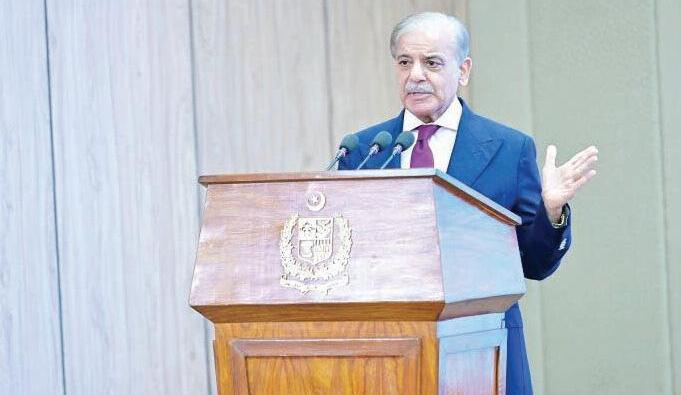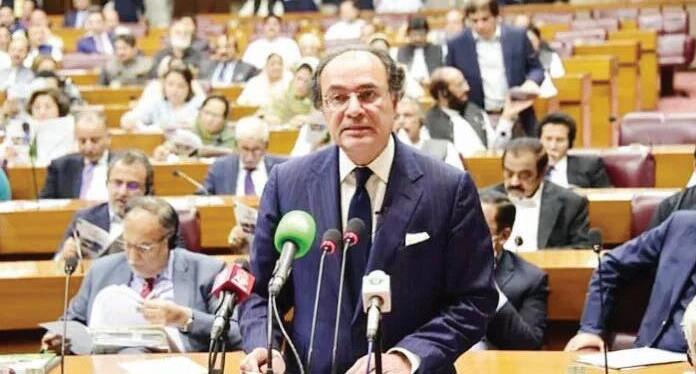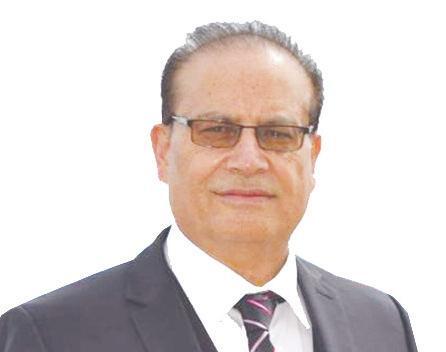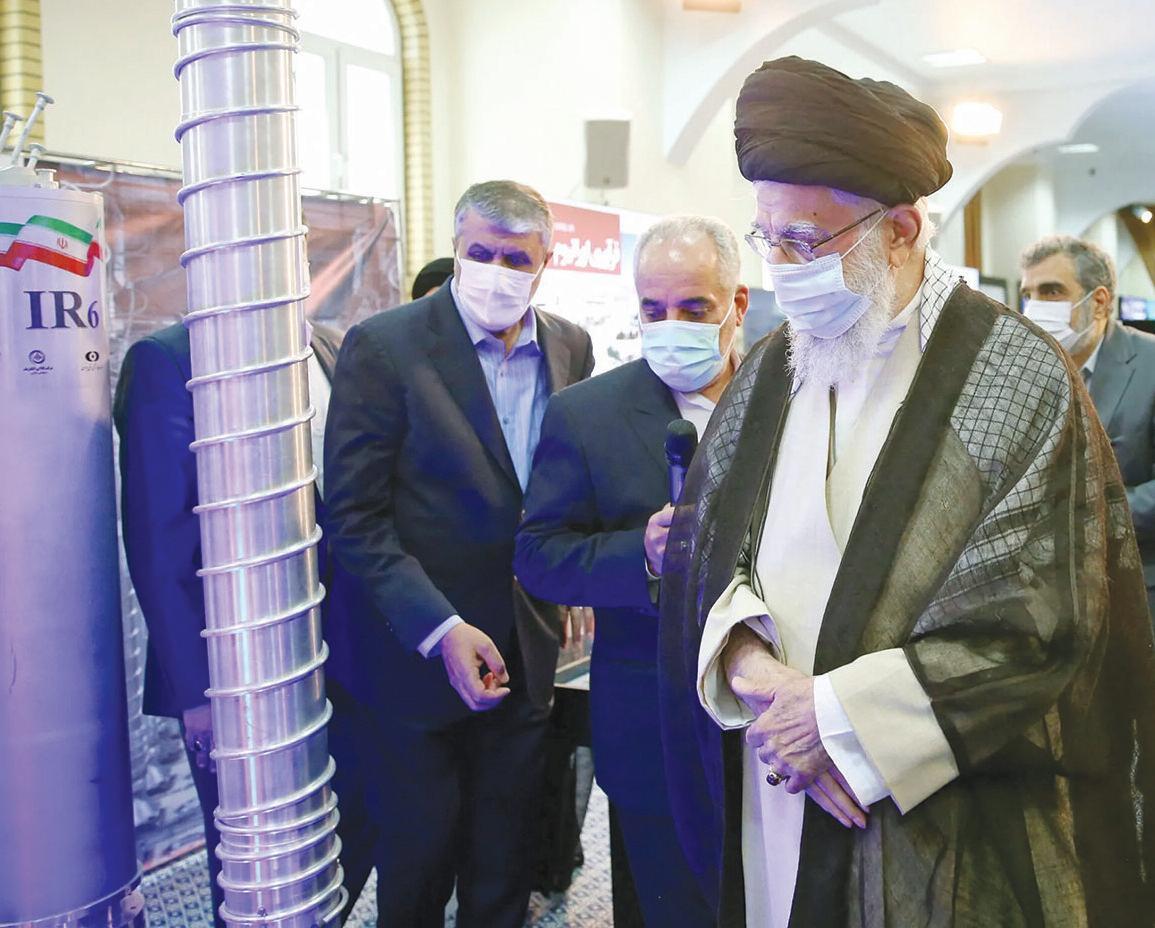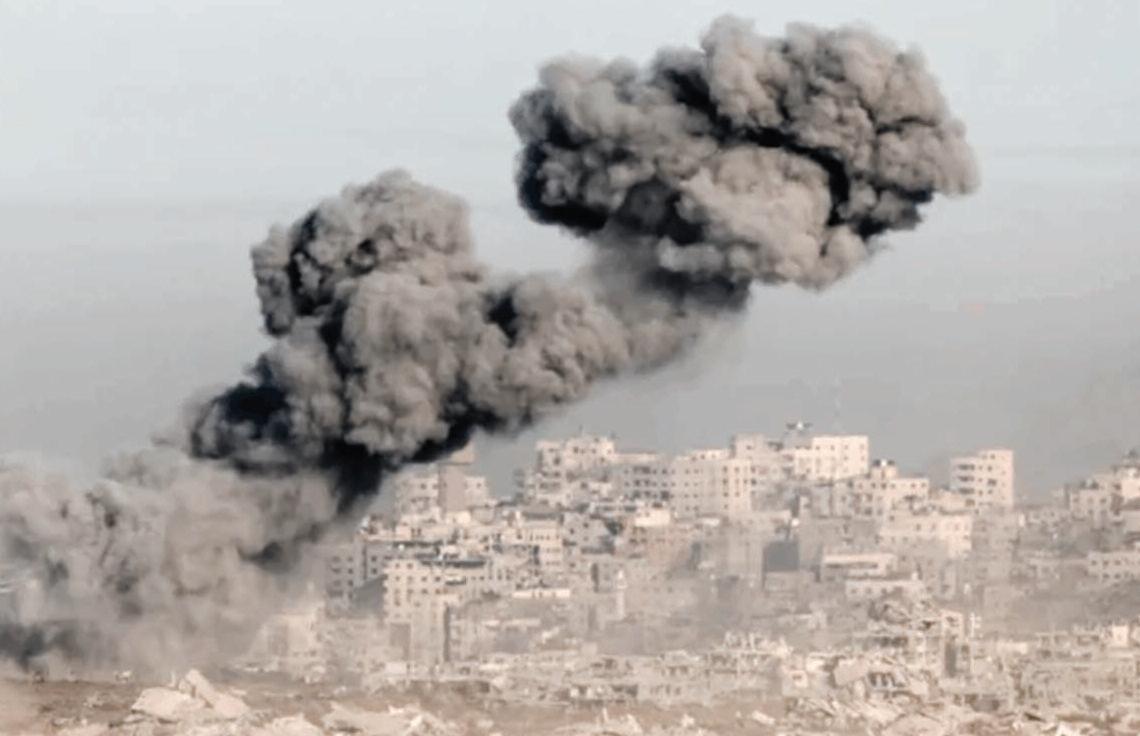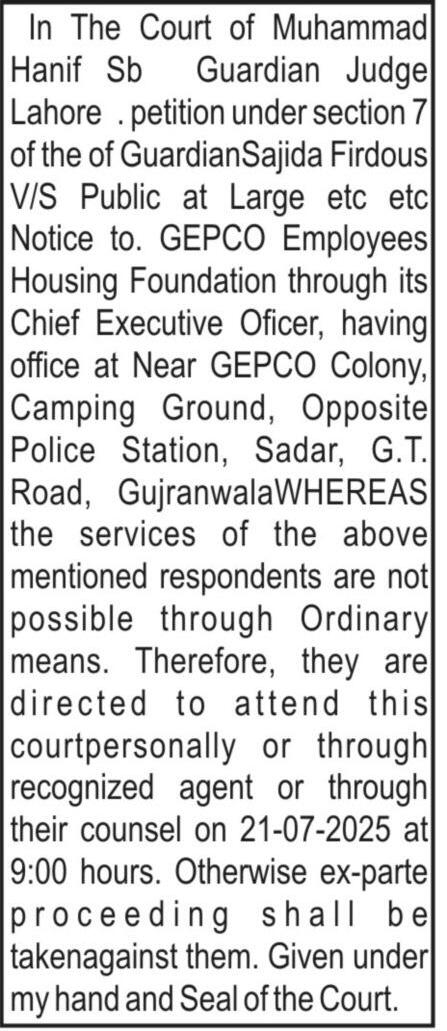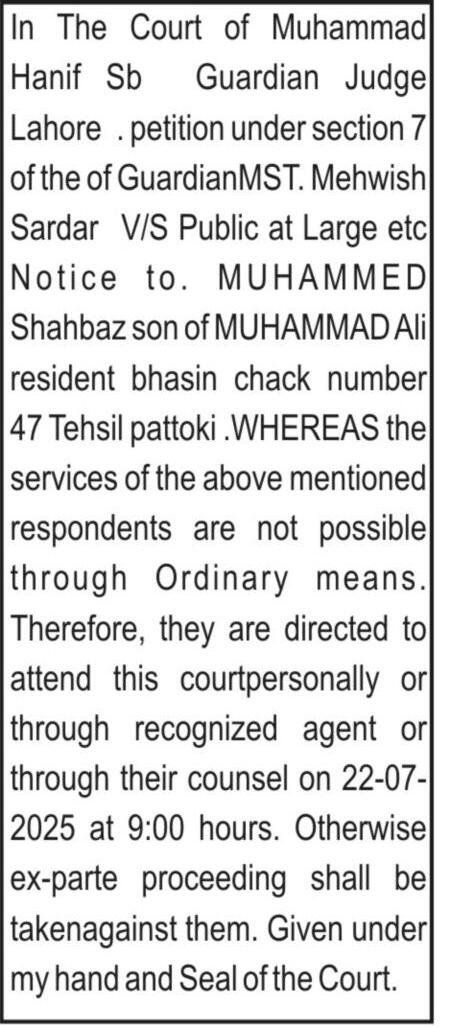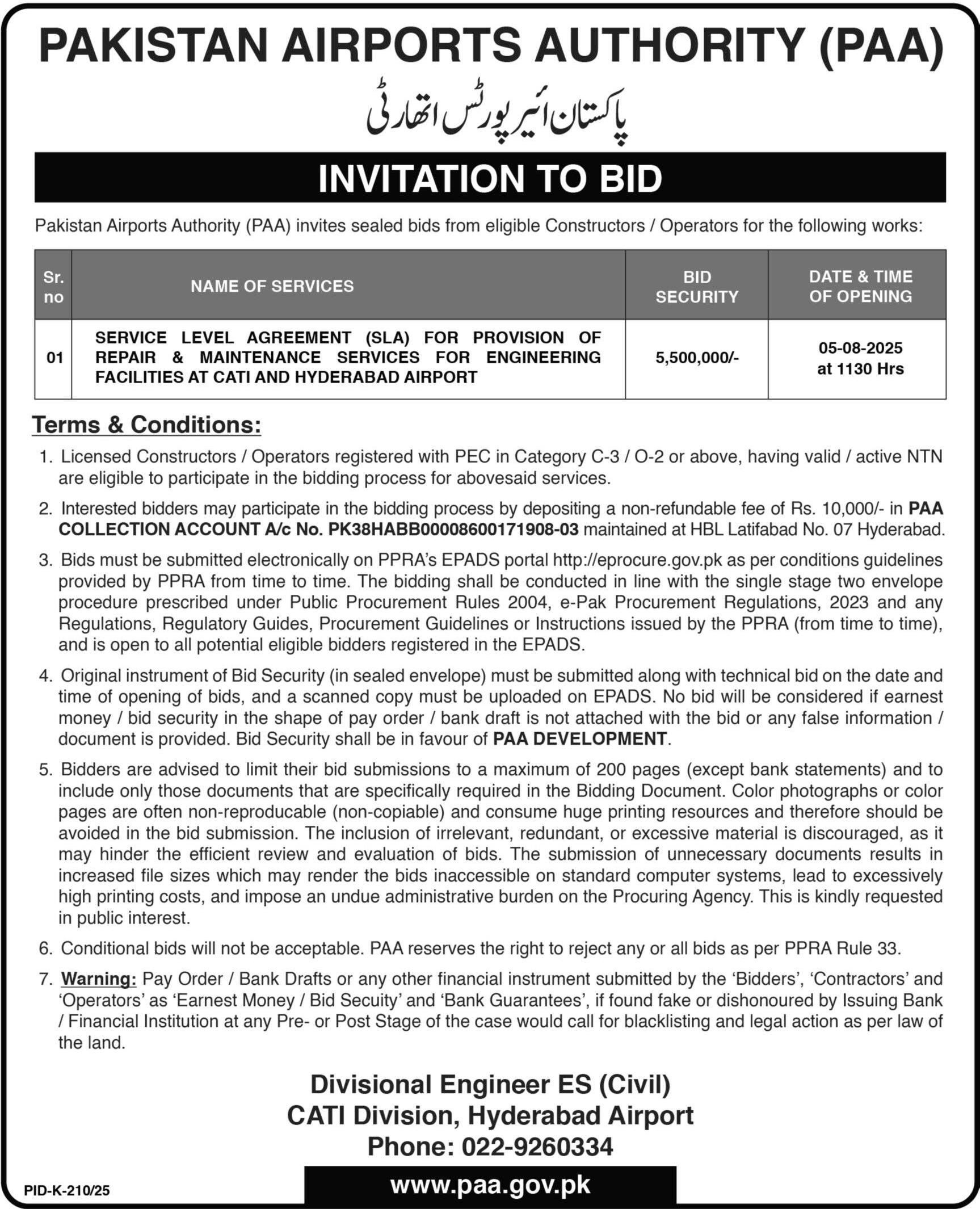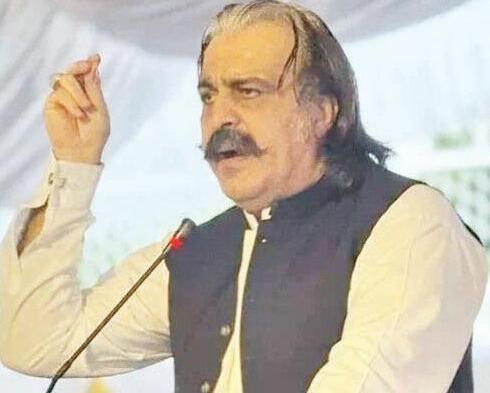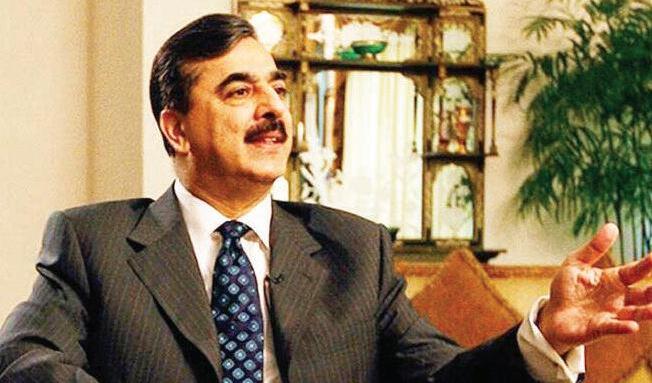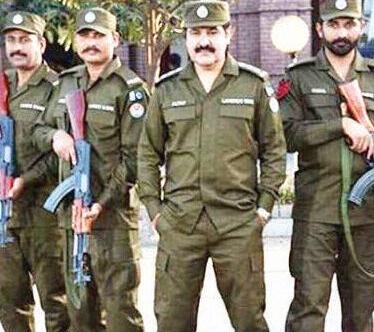PRIME Minister Shehbaz Sharif on Friday emphasized the urgent need to transition towards electric vehicles (EVs), highlighting their potential to save billions in foreign exchange spent on fuel protect the environment and stimulate the domestic manufacturing sector Chairing a meeting focused on promoting EV adoption across the country, the prime minister directed the preparation of a comprehensive government-level action plan to make electric vehicles accessible to the general public During the session the prime minister announced that high-achieving students from educational boards nationwide, including the federal board, will be awarded electric bikes free of cost He further stated that unemployed citizens would be given priority in receiving electric rick-
shaws and loaders to promote job creation and economic empowerment Emphasizing inclusivity, the prime minister ordered that economically disadvantaged individuals be prioritized in all EV distribution schemes supported by the government The prime minister instructed officials to take concrete steps toward building a complete ecosystem for the manufacturing and maintenance of electric vehicles within Pakistan To ensure transparency and accountability he also directed that the entire EV distribution process and government support mechanisms undergo third-party validation In a move to promote public understanding, the prime minister called for launching an awareness campaign to inform citizens about government programs related to electric vehicles He underscored that all electric bikes rickshaws and loaders provided through the scheme must adhere to high-quality and safety standards to ensure reliability and public confidence Officials briefed the meeting on the current state of Pakistan’s EV industry and shared updates

Pakistan extends airspace ban for Indian flights until August 23
s ta f f r e p o r t
Pakistan on Friday announced extending its airspace restrictions for Indian airlines by another month, until August 23 Following the government’s decision the Pakistan Airport Authority (PAA) issued a new Notice to Airmen (NOTAM) reaffirming the ongoing suspension of overflight permissions for aircraft registered in India According to the NOTAM, all Indian-registered aircraft are strictly prohibited from using Pakistani airspace for any operations, including overflights and transit The restrictions were initially enforced on April 23 and have been consistently renewed since then The Pakistan Airport Authority maintains that the ban remains in effect until further notice and applies to all aircraft under Indian registry, with no exemptions granted Pakistan had initially closed its airspace for Indian airlines in a tit-for-tat move after New Delhi suspended the critical Indus Water Treaty amid heightened bilateral tensions following the deadly Pahalgam attack in Indian Illegally Occupied Jammu and Kashmir (IIOJK) Following the Pahalgam attack India launched strikes on Pakistan, resulting in the martyrdom of several Pakistanis In retaliation, Pakistan responded with its own attacks on India, prompting US intervention and ultimately leading to a ceasefire After the ban, reports indicated that Indian airlines suffered losses worth millions of dollars due to additional fuel costs from forced stopovers on long-haul flights
o r t Pakistan on Friday rejected allegations linking a defunct banned group to the April 22 attack in Indian-illegally occupied Kashmir after the United States designated “The Resistance Front (TRF),” considered an offshoot of the proscribed Lashkar-e-Taiba (LeT) as a foreign terrorist organization according to a foreign office statement on Friday FO Spokesperson Shafqat Ali Khan, in a statement, reaffirmed the country’s firm commitment to counterterrorism reiterating that Pakistan condemns terrorism in all its forms and manifestations and pursues a policy of zero tolerance Pakistan has been, and continues to be, a frontline state in the fight against terrorism,” the statement said highlighting Islamabad s contributions to global peace including the recent arrest of Sharifullah identified as the mastermind of the 2021 Abbey Gate bombing in Kabul, the FO spokesperson said The US designation came after TRF was accused of carrying out the April 22 Pahalgam attack a resort town in the Indian-occupied Jammu and Kashmir, which killed 26 people U S authorities alleged the group is an offshoot of Lashkar-
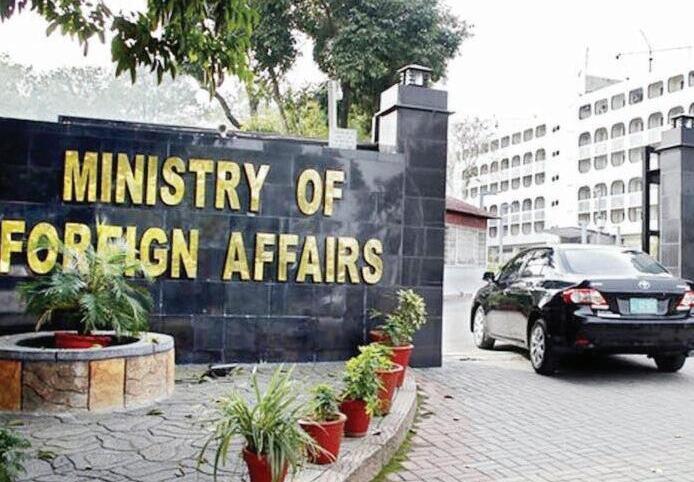
e-Taiba (LeT) which was banned in Pakistan years ago Responding to the development, the FO statement said that investigations into the Pahalgam incident remained inconclusive It rejected the reported linkage between TRF and LeT stating that the group concerned had been comprehensively dismantled with its leadership prosecuted and its members rehabilitated
The statement also criticized India for what it called the misuse of terrorism-related designations for political purposes India has a record of exploiting such matters to promote anti-Pakistan propaganda and to divert attention from its on-
going human rights violations in Indian-controlled Kashmir the ministry said
The FO spokesperson urged the international community to adopt a balanced, evidence-based approach in combating terrorism and called for equal scrutiny of all terrorist entities In this regard it emphasized the need to designate the Majeed Brigade as an alias of the banned Balochistan Liberation Army (BLA)
Reaffirming its role as a counter-terrorism bulwark the FO statement called for collective global efforts to address the threat of terrorism through objective and non-discriminatory policies
The US sanctions that backfired
IThis demographic devastation is not accidental It is systematic, targeted, and genocidal Albanese called Gaza “a living textbook of genocide ” fulfilling every criterion under international law deliberate killings destruction of living conditions forced displacement and erasure of cultural identity She described how Israeli raids have decimated Palestine s knowledge ecosystem: universities bombed, professors assassinated, students slaughtered, libraries turned to dust Gaza’s last remaining research centres and cultural hubs have been wiped out It is not only the bodies but the collective memory and future of a nation being erased Commerce and civil society lie in ruins Shops bakeries factories and schools have been obliterated Gaza is left with no one to educate, to trade, or to heal The goal
Dedicated to the legac y of late Hameed Nizami Arif Nizami (Late) Founding Editor
provide anyone a post-retirement nest-egg, the better M A Niazi Editor Pakistan Today Babar Nizami Editor Profit
N a jarring move that sent shockwaves across the globe, the USA imposed sanctions on Francesca Albanese, the United Nations Special Rapporteur on the Occupied Palestinian Territories, accusing her of “systematic demonization” of the USA But behind this vague allegation lies a disturbing truth: Albanese s real offense was exposing the industrial economy of genocide one fueled not just by the Israeli government but by a vast network of corporations, hedge funds, universities, and pension systems across the West Her latest report, “The Economy of Genocide,” and a subsequent viral interview laid bare the machinery of death behind the war on Gaza She revealed how weapons manufacturers bulldozer suppliers and construction conglomerates are not merely supporting genocide they are profiting from it Israeli bulldozers raze entire neighborhoods, while construction contracts to rebuild illegal settlements flow rapidly For every bomb dropped, there’s a dividend earned; for every displaced family a new high-rise emerges But what shocked the conscience of the global public was not merely her confirmation of genocide it was the financial lifelines she traced From American surveillance and cloud-computing firms to European pension funds and elite universities, Albanese exposed how deeply this war is sustained by capital flows Norway’s Government Pension Fund alone holds over $122 billion invested in companies complicit in Israeli occupation and military operations Similar financial trails lead to Sweden Germany, France, and the United Kingdom Even Ivy League institutions like Harvard, Stanford, and NYU often hailed for social justice advocacy are enmeshed through opaque endowment investments and silent third-party fund managers These universities while professing solidarity with Palestine in student forums funnel capital into firms that supply arms and equipment to Israeli forces Francesca Albanese did not stop at the economic trail She painted an unflinching picture of Gaza s humanitarian catastrophe “More than 75 percent of those killed in Gaza and the West Bank are women and children ” she said emphasizing that these victims cannot be labeled militants by any legal or moral standard Their only crime is being Palestinian
Iis widespread and affects fragile communities Physical harm displacement trauma and mental health problems are caused by climate-related disasters Public health systems, already under immense pressure from traditional diseases are now being stretched thin by climaterelated conditions The hospital responds to an increasing number of patients suffering from heatwaves
Both physical health and psychological wellbeing suffer Forced evacuation produced by torrents and rising seas leads to fear and frustration which converts to depression and unease For those with poverty-stricken substructures, the crisis is even more acute The absence of health care capital and backup services result in higher rates of infections and casualties during the times of climatic disasters A critical role in interpretation of these issues is carried by the media Television, magazines, websites and social media domains convey information to masses daily Technically the media play the role of a bridge between specialists and individuals helping to raise awareness provide useful advice and make calls for action Campaigns that hold the ability to promote public health guidelines and climate adaption strategies have the potential to drive significant change However, the media also has an ugly side consisting of misinformation biased reporting and sensational headlines often confuse the public or distract them from the actual issue For example debates around climate change can become overly politicized, with sides playing for different agendas People lose trust in the government when misleading narratives are promoted Additionally a huge obstacle the media
The time has come for people not governments to act The collective conscience of the world, including Americans, Israelis, and the global Islamic community, must rise It is time to boycott Israeli goods, end all economic suppor t to war profiteers, and demand democratic action from parliaments to stop the slaughter.
faces is unsatisfactory access Access to the internet in rural areas is almost nil which results in information gaps where entire sections of the populace may not be informed of an emergency crisis or evacuation
The linkage of health, climate change and media require collaborative approach Officials experts healthcare professionals and mass media personnel must work wholly to configure a consensus that tackles these obstacles holistically Climate counter plans must take in healthcare precautions and emergency health alternatives should be shared largely through media Public education dialogues can offer individual categories honest sources of evidence and make informed actions in times of calamities
Eventually the triple threat of climate change heath care and media shows the profound associations of modern culture Resolving these complications require acknowledgement that any of these cannot be dealt exclusively Each distresses the other and each holds the strength to shape consequences for better or worse By working combinedly instigating scientific knowledge firming up healthcare systems, and relating accountable media, the social order can build flexibility and preserve both present and forthcoming generations from the awful costs of these comprehensive issues
The writer is a freelance columnist
Expor ts and exploitation
QaMar Bashir
ital exodus and institutional regression The central analytic challenge is to elucidate how oil dependency, authoritarian consolidation, the subordination of the Central Bank, and securitized macroeconomic management have entrenched chronic inflation Is there a viable pathway to stabilization within prevailing international standards?
HISTORICAL EVOLUTION: REVOLUTION, RENT-SEEKING, AND THE IN-
S T I T U T I O N A L I Z A T I O N OF INFLATION (1979–2025): The 1979 Revolution initiated a rupture in Iran s political economy marked by pervasive nationalization state intervention and the eclipse of the private sector Subsequent wartime exigencies in the 1980s imposed fiscal indiscipline, monetization of deficits, and the emergence of stagflationary dynamics IMF and World Bank analyses underscore the role of state-driven money creation in deepening currency misalignment repressing productive investment, and amplifying vulnerability to external shocks
The post-war era of the 1990s, despite nominal attempts at economic liberalization, failed to establish central bank autonomy or a diversified fiscal base Successive oil booms fostered populist expenditures policy volatility and systemic fragility The 2000s saw the escalation of nuclear ambitions, regional interventions, and an intensified di-
version of public resources to opaque security priorities and proxy networks Comparative political economy research (Chatham House, Brookings, LSE) documents the erosion of transparency, rising indebtedness, and the subordination of fiscal policy to geopolitical calculation
The 2010s and 2020s are distinguished by the synergistic pressures of intensified sanctions financial isolation and an aggressive shift toward monetary expansion Liquidity surges, asset price bubbles, rampant speculation, and the collapse of productive investment coalesced with capital and human outflows while public trust and civic participation deteriorated The expectations crisis marked by generalized uncertainty defensive economic behaviors and widespread social disaffection has become selfperpetuating, rendering the inflationary trap intractable
SOCIOECONOMIC, BEHAVIORAL, AND INSTITUTIONAL IMPACTS:
Chronic inflation in Iran transcends the boundaries of economics; it constitutes a comprehensive societal trauma Price volatility and policy unpredictability have driven capital flight into parallel markets foreign currency gold real estate and crypto-assets while undermining confidence in productive investment and collective action Behavioral economics and institutional sociology identify an emergent self-rescue paradigm: withdrawal of capital, erosion of entrepreneurial initiative, and the retreat of business from risk-bearing to short-term defensive postures
The social consequences are profound: heightened inequality the collapse of developmental consensus, and the attrition of social cohesion Comparative studies (LSE, Harvard, Tehran University) highlight the causal nexus between politicized resource al-
location defensive market behaviour and unprecedented rates of skilled migration and capital outflow On the psychological level, sustained inflation has fostered pervasive anxiety, economic conservatism, and a truncated planning horizon The shift to risk-averse short-termism entrenches the decay of human capital and the persistence of structural poverty
WHY IS IRAN’S INFLATION SO
INTRACTABLE? STRUCTURAL
DETERMINANTS: The persistence of inflation in Iran is attributable to the interaction of the following foundational mechanisms:
1 Rentier Oil Dependence and Chronic Fiscal Deficits: Heavy reliance on oil revenue makes fiscal sustainability hostage to exogenous price shocks Every disruption in oil export receipts translates into expanding deficits central bank monetization and inflationary surges IMF and World Bank evidence indicate the lack of a sustainable tax base perpetuates fiscal vulnerability and cyclical liquidity crises
2 Geopolitical and Nuclear Prioritization over Economic Rationality: A growing portion of state budgets is funneled into costly nuclear projects and regional power projection, subordinating the Central Bank to the imperatives of security policy This subverts institutional autonomy distorts monetary governance and inhibits policy transparency International think tanks (Chatham House Brookings) have identified these trends as critical in weakening Iran s economic and institutional fabric
3 Financial Opacity and Institutional Weakness: Prevalence of off-budget ex-
penditures, pervasive security prerogatives, and limited oversight fuel corruption and inefficiency The lack of public financial data intensifies inflationary expectations and deters both domestic and foreign investment
4 International Sanctions and Isolation: Sanctions have constricted productive capacity, severed access to global finance, and destabilized monetary and banking systems Recurring exchange and monetary crises reinforce the incentives for capital flight and speculative hoarding
5 Erosion of Social Capital and Public Trust: Prolonged crisis has hollowed out civic engagement, fostered atomization, and eroded faith in collective solutions The resultant brain drain and institutional alienation make reform efforts increasingly elusive
6 Behavioral and Expectational Feedback Loops: Persistent inflation and uncertainty generate herd behaviour, speculative strategies, and a retreat into safe-haven assets, intensifying liquidity expansion and deepening the recessionary spiral
Collectively these mechanisms constitute a self-reinforcing architecture of instability and chronic inflation, impervious to superficial or technocratic interventions
TOWARD A STRATEGIC REALIGNMENT:
Half a century of crisis in Iran underscores that sustainable stabilization is unattainable absent structural transformation rooted in institutional renewal and alignment with international standards of macroeconomic governance
Iran
AM O G H Dhar Sharma s The Backstage of Democracy is not a casual academic book It is a serious urgent and deeply revealing account of how Indian elections have been fundamentally transformed, not by voters or politicians alone, but by a new class of political professionals who have quietly redrawn the map of democratic politics in India
Over a decade of fieldwork Sharma pulls back the curtain on India s electoral theatre to show us the backstage – the consultants data engineers digital war-room operatives pollsters media specialists and technocratic elites who now shape political campaigns in granular, calculated and often ethically murky ways His argument is sharp: India’s democracy has not simply been digitised; it has been professionalised That shift is political cultural and deeply sociological Through two conceptual lenses internal and external professionalisation Sharma traces how parties like the Indian National Congress (INC) and the Bharatiya Janata Party (BJP) began relying less on old-school cadre-based mobilisation and more on salaried employees, in-house policy researchers, social media handlers and corporate-trained professionals He calls these people “party employees” Parallelly political campaigns now also outsource major work like voter segmentation message design even booth strategy to external consultants like the now-famous Prashant Kishor and his firm I-PAC These consultants operate outside party ideology They are loyal not to ideas, but to efficiency That is Sharma’s deeper concern When electoral politics becomes the domain of professionals trained in marketing data science and public relations what happens to the messy participatory ideological roots of Indian democracy? The answer Sharma suggests is sobering: they begin to rot One of the most powerful contributions of this book is Sharma s sociological profiling of the new political professionals These are largely urban, upper-caste, English-speaking, middleclass men, products of elite institutions like IITs and IIMs, who view politics as a management problem not a social struggle They are not elected but they often determine who gets tickets They don t speak the language of ideology but they master the language of sentiment analysis They don t canvas; they create WhatsApp narratives They don t believe in grassroots democracy; they believe in targeted messaging Sharma’s
Sharma shows how INC attempted to bring technocrats into the party but often without giving them real power The party wanted to be seen as modern but failed to root that modernity in political will This uneven adoption across parties creates an electoral field where the BJP’s weaponised data infrastructure outpaces others not just technically but discursively BJP’s political consultants have used technology to amplify Hindu nationalist ideology creating a terrifying synergy between corporate professionalism and right-wing populism
TECHNOLOGY AND THE POLITICS OF EVIDENCE: Perhaps the most intellectually satisfying part of Sharma’s book is his critique of how technology is imagined in politics – not just as a tool but as a discourse He shows that professionalisation is not only about new gadgets or data dashboards It is also about a new way of speaking about politics: terms like data-driven scientific neutral and objective become the new mantras But who decides what counts as data ? Who defines what the public mood is? Who builds the algorithms and to what end? Drawing on theorists like Jürgen Habermas and Paolo Mancini Sharma argues that this is the scientificisation of politics – a shift from ideological debate to technocratic calculation While this may seem apolitical it is anything but It displaces accountability, erases ideology and hands over politics to consultants who are unelected, unaccountable and often invisible This is not just a story of changing campaigns It is a story of changing democracy When political parties become clients of private firms when slogans are tested in focus groups when booth-level workers are replaced by spreadsheet dashboards then democracy is no longer a public participatory event It becomes a product launch And that is the true danger of professionalisation: it doesn t just change how elections are fought It changes why we fight them The old dreams of democratic politics – justice, equality, secularism – are slowly being replaced by dreams of market segmentation brand recall and voter conversion Politics is no longer about mobilisation; it is about manipulation In that sense Sharma s book is not merely descriptive It is a warning What makes this book persuasive is not just its argument, but its method Sharma spent years talking to consultants, party workers, strategists, digital volunteers and campaign architects This is rare ethnographic work, and it shows His descriptions of the BJP’s IT Cell of the behind-the-scenes
AT the invitation of Member of the Political Bureau of the CPC Central Committee and Foreign Minister Wang Yi India’s External Affairs Minister Subrahmanyam Jaishankar is scheduled to attend the Meeting of the Council of the Ministers of Foreign Affairs of the Shanghai Cooperation Organisation (SCO) Member States in Tianjin on July 15, and will also pay a visit to China This marks his first visit to China in five years On Monday Chinese Vice President Han Zheng met with Jaishankar in Beijing Han said China and India are both major developing countries and important members of the Global South It is the right choice for both sides to be partners contributing to each other’s success and realize the “Dragon-Elephant Tango ” During his talks with Jaishankar Wang stated that the two sides should build mutual trust instead of suspicion pursue cooperation instead of rivalry and support each other s success instead of wearing each other down Jaishankar said that India-China relations have shown steady improvement, and said in a statement released by India’s Ministry of External Affairs that continued normalization of our ties can produce mutually beneficial outcomes
It is not hard to see that China and India currently share a notable consensus - the continued improvement of bilateral relations is both the right path and a beneficial one Phrases such as “continued thawing ” “on the mend ” “back on track ” and “slowly improving” reflect the generally optimistic expectations in Indian public opinion regarding Jaishankar s visit to China
Compared with the past the Indian side s tone and messaging have also become more positive and pragmatic
From a longer-term perspective, the fact that this is the Indian foreign minister’s first visit to China in five years highlights the abnormal state of China-India diplomacy However following the successful meeting between the two leaders in Kazan last October - which marked a fresh restart for bilateral relations - this breakthrough in high-level diplomatic engagement now stands as another sign of steady improvement in China-India ties Any effort that helps restore the normal mechanisms of communication between the two sides should be viewed positively
But the steady improvement of China-India relations - especially their long-term, healthy, and stable development - still requires both sides to build resilient strategic trust based on mutual respect for each other ’s core concerns Jaishankar s visit to China becoming a focus of public attention is no coincidence; it reflects the long and difficult process of repairing bilateral ties Moreover, some Indian strategic circles have shown reluctance to make a clean break with the remnants of the “Tibetan independence” exile forces repeatedly testing China’s bottom lines and eroding the foundation of political mutual trust between the two countries Meanwhile some countries like the US have long sought to exploit gaps and drive wedges between China and India in an attempt to hinder their common development adding
aMir rEza Etasi
GLOBAL
N S
Germany depor ts 81 Afghans convic ted of crimes
There is no right of residence for serious criminals in our country Berlin has had only indirect contact with the Taliban authorities through third parties with Friday s operation executed with the help of Qatar, said the German interior ministry Germany had stopped deportations to Afghanistan and closed its embassy in Kabul following the Taliban s return to power in 2021
But expulsions resumed last year for the first time since the Taliban came to power, when the previous government of Social Democrat chancellor Olaf Scholz expelled a group of 28 Afghans convicted of crimes
Iran says Europeans have no grounds to trigger sanctions snapback
CORPORATE CORNER
Euromoney
CM MARYAM SEEKS QUICK DRAINAGE
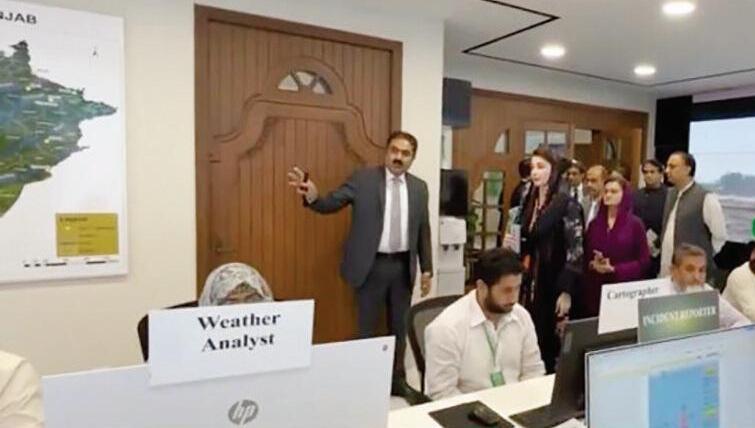
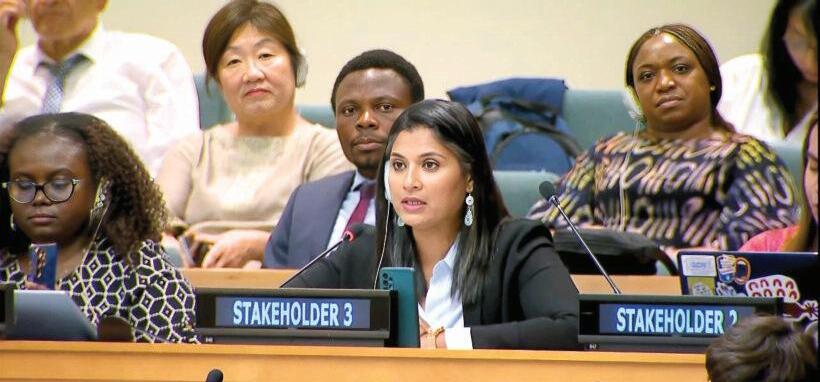
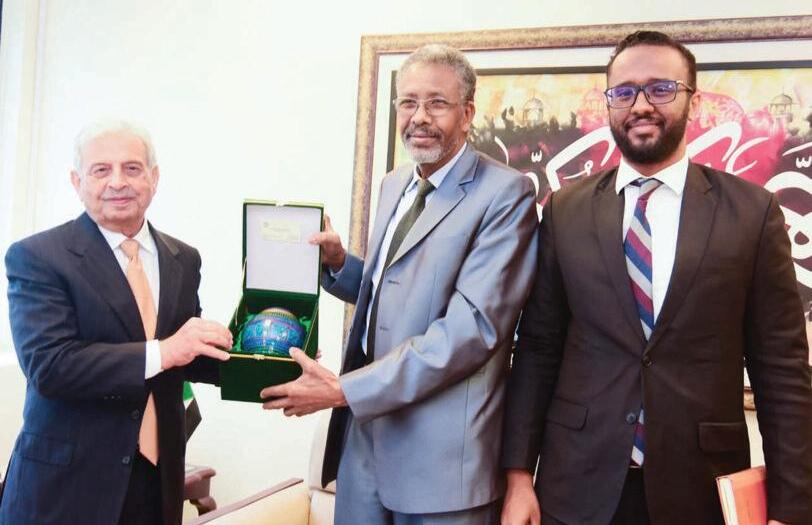
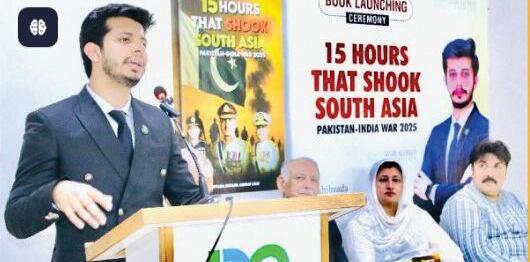
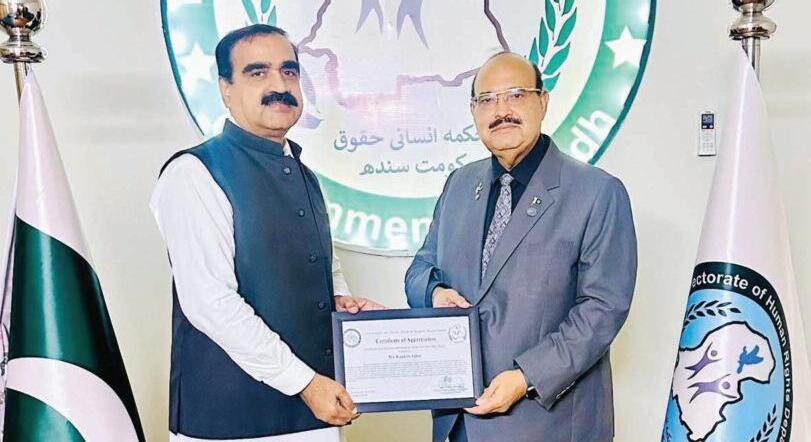
Human Rights Defender Appreciation Program, has awarded a Certificate of Appreciation to Mr Kaukab Iqbal, Chairman of the Consumers Association of Pakistan (CAP), in recognition of his lifelong commitment to the protection and promotion of human rights through consumer advocacy Mr Iqbal has played a transformative role in advancing public access to safe food healthcare justice and fair treatment fundamental human rights protected under both national and international frameworks His tireless efforts in the areas of food safety regulation, consumer courts price control and public accountability have significantly contributed to empowering citizens and upholding their right to live with dignity Speaking on the occasion Agha Fakhur Hussain, Director of the Human Rights Department, stated: Consumer protection is a vital component of human rights Mr Kaukab Iqbal’s work has set a benchmark for civic leadership, standing firmly against exploitation injustice and negligence We are proud to recognize him as a true Defender of Human Rights This recognition was awarded
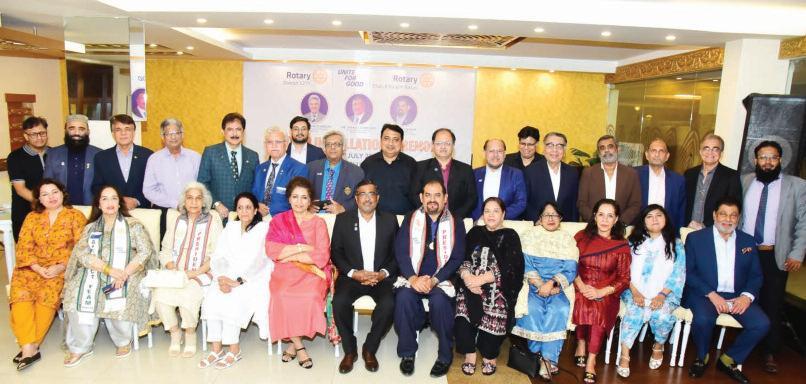
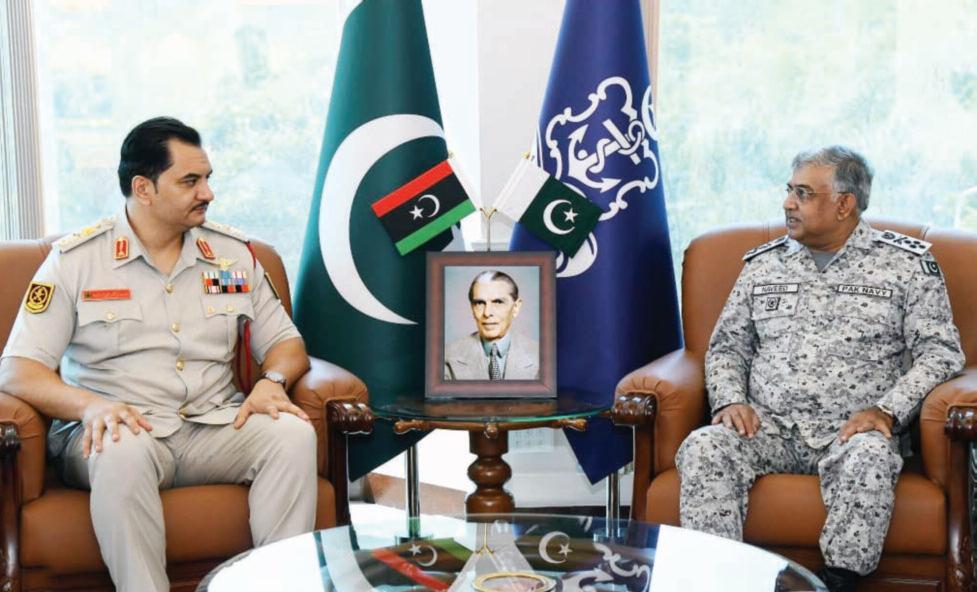

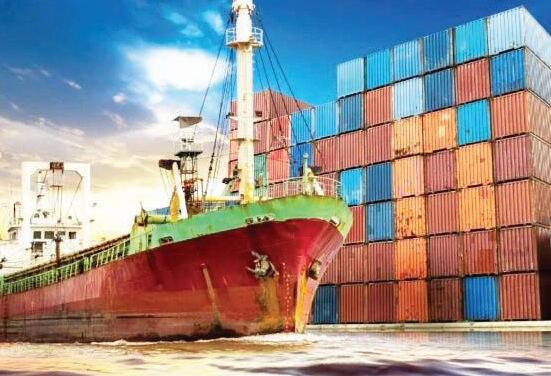
Yousuf R aza Gilani fully acquitted in TDAP scandal af ter cour t clears him of all
charges
After a prolonged vacancy of nearly two and a half months, the federal government has finally made a significant appointment in the Oil and Gas Regulatory Authority (OGRA) by appointing Shakeel Ahmed as Member (Finance) This
notification issued by the
According to an
Secretariat, Establishment Division, Shakeel Ahmed has been appointed on a contract basis for a period of two years, effective immediately and until further orders The notification further mentions that the appointment has been made with the approval of the federal government under section 3(8)(C) of the OGRA Ordinance 2002 The notification has also been forwarded to the Printing Corporation of Pakistan for publication in the next issue of the Gazette of Pakistan, formally cementing the appointment Shakeel Ahmed brings a wealth of experience from the energy sector having been previously associated with Sui Southern Gas Company Limited (SSGCL) Until recently he served as the Managing Director of SSGCL s LPG subsidiary where he was recognized for his operational and managerial expertise in the liquefied petroleum gas segment The seat of Member Finance at OGRA had been lying vacant since the expiry of the tenure of the previous member Muhammad Naeem Ghouri whose extended term ended in April 2025 Ghouri had initially been appointed in July 2022 for a two-year term followed by multiple short-term extensions but no permanent replacement had been finalized until now Interestingly, sources revealed that the process for appointing the new Member Finance had experienced unexpected delays and twists During the tenure of former Petroleum Minister Musadik Malik two candidates had been shortlisted: Salman Ameen currently serving as Member of the Competition Commission of Pakistan, was the top-ranked candidate, followed by Shakeel Ahmed as the second choice
Senate Chairman and former Prime Minister Yousuf Raza Gilani has been acquitted in all remaining cases related to the mega corruption scandal in the Trade Development Authority of Pakistan (TDAP), bringing an end to a prolonged legal battle
On Friday an anti-corruption court cleared Gilani of charges in 14 remaining cases just days after his earlier acquittal in 12 other cases, totaling 26 cleared charges in connection with the TDAP scandal
The court’s decision was based on the absence of evidence that any illicit funds had been transferred into Gilani s accounts In its remarks the court pointed out that accused individuals including Gilani, had been waiting for justice for over 12 years
The court also criticized the handling of the case noting that a key witness who had initially turned approver was later made an accused Furthermore the court highlighted that certain case records were still pending with the high court, which had delayed the legal proceedings
The TDAP corruption scandal one of the largest investigations involving alleged embezzlement of Rs 7 billion in freight subsidies dates back to 2009
The Federal Investigation Agency (FIA) had initiated its investigations into the matter in 2009 but formal cases were registered only in 2013 Gilani was formally named as an accused in 2015 when the final charge sheet was presented Earlier, on July 10, 2025, the
Federal Anti-Corruption Court in Karachi had acquitted Gilani in nine additional cases related to the same scandal This acquittal brought his total number of cleared cases to 12 as he was previously cleared in three other cases earlier this year
Despite the ongoing legal challenges, the court s decisions marked a significant victory for Gilani
Speaking outside the court following the acquittal Gilani reiterated his position that the charges against him were baseless and unjustified Justice delayed is justice denied These cases have been going on for 12 years, he remarked, emphasizing the long and drawn-out nature of the legal process
The TDAP scandal itself involved the fraudulent distribution of trade subsidies to fake companies, leading to the misappropriation of billions of rupees These fraudulent companies had been set up to falsely claim subsidies under the government’s trade policies
The investigation launched during the Pakistan People s Party (PPP) government raised serious concerns about the misuse of public
funds during the PPP era The acquittal of Gilani has been met with mixed reactions, with some hailing the decision as a victory for justice while others have questioned the handling of political accountability in the country
Despite the court rulings in his favor, Gilani s legal journey continues to be one of the most significant political cases in recent Pakistani history raising concerns about the long-term impact of such corruption investigations on public trust in government institutions Gilani also addressed political speculation in his comments after the acquittals, dismissing rumors surrounding the health and political future of former President Asif Ali Zardari
On the political front Gilani confirmed that the PPP s Central Executive Committee (CEC) had decided against joining the government, though he emphasized that the CEC could revisit this decision in the future He clarified that he was not part of the government and was not its spokesperson stressing the PPP s position on political matters
ISLAMABAD

